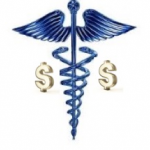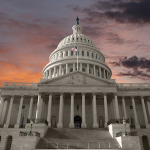Director of Medicine Dr. Jamie Wells attended the annual Yale-West Point Civil-Military Service Symposium, where issues of veterans health policy were extensively discussed.
Policy & Ethics
The IARC monograph program on Evaluation of Carcinogenic Risks must be reformed and brought into the 21st century – or it should be abolished
The public is becoming increasingly skeptical of science. It's the natural outcome of a society that's hyper-partisan, and one that's told to be ever-more distrustful of expertise and authority. It's not surprising, therefore, that research perceived as even mildly controversial is immediately met with the charge "Follow the Money!"
“When I use a word,” Humpty Dumpty said in rather a scornful tone, “it means just what I choose it to mean — neither more nor less.” - Alice in Wonderland
Science is, above all, a methodology designed for discovering objective “truths” about the natural world. All lawyers and politicians speak quite highly of Truth, and all routinely claim that it is on their side, rather than their opponents’, however, the real function of legal and political debate is not to discover truth, but to win. And, whenever “winning” is the prime directive,
There has been a great deal of hyperbole and confusion about the recent and future direction of science and health in America, both in the applied and basic research sense, but for the public it's hard to separate what is a legitimate worry versus what has been manufactured due to lingering animosity over a contentious 2016 campaign season.
As usual, the loudest political activists have hijacked the discourse.
But not all scientists are on one side of the political aisle, and not everyone wants to march against the federal government based on guesses about what policy directions may be. Instead, many want to make a positive difference.
You don't need to be against something to be for something.
Faced with the ever-growing, internet echo-chamber as well as the many other sources of information available to us, it's worth taking a moment to listen to the radio show, On Being. It is a restorative program that gives you the chance to enjoy the beauty of science, and the scientific enterprise.
Here's the real scoop from someone who worked at the highest levels in the private sector, who started the Science 2.0 movement, and who now runs a pro-science consumer advocacy non-profit: Corporations do not give people money to do something they are already doing for free.
New titles like “clinician,” “advanced practitioner” or “provider” are masking a stark reality. People will be able to practice medicine without ever attending medical school, performing rigorous residencies or be comprehensively and extensively trained as physicians. It's a frightening – and very real – trend.
A politician seems to be filing lawsuits based on "green" donor agendas rather than on behalf of the public. That's a very bad thing.
John Noseworthy is politically incorrect as he speaks truth to power. He reveals the Ponzi scheme underlying the Affordable Care Act and its proposed replacement being offered by the Trump Administration, the American Health Care Act.
Will patients ever shop for health care the way consumers do for an iPhone? Pfizer's Dr. Robert Popovian asks this question in his latest contribution for Morning Consult. The answer? Individuals need much more information to make informed decisions. To that point, here's one way this could work.
The president's budget proposal for 2018 should raise some serious concerns. Cutting science funding, particularly that of the National Institutes of Health, is not aligned with his goal to "Make America Great Again."











